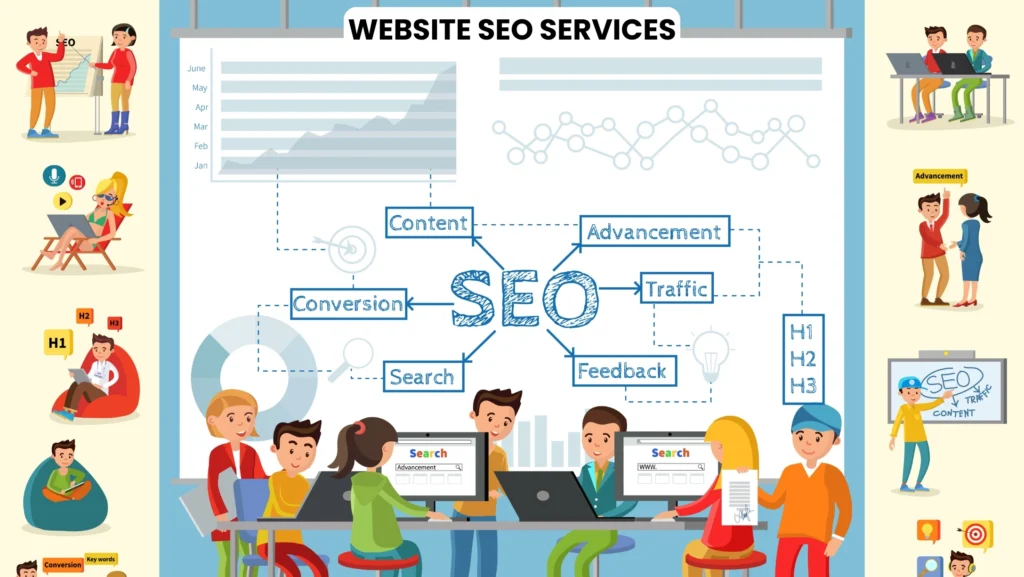People don’t flip through the yellow pages anymore. They search. Online. Often late at night. Often in distress. When someone types “therapist near me” into Google, will your name come up? If not, you’re missing real opportunities. That’s where SEO for therapists comes in. It helps the right people find you—right when they’re looking.
Let’s break it down in simple terms.
So, What is SEO for Therapists, Really?
Think of SEO as making your website more “searchable.” If your site speaks the same language your future clients are typing into Google, it’s more likely to show up.
“Anxiety support in Denver.”
“Online grief therapy.”
“Couples counseling California.”
These are common searches. If you offer any of those services, your website should be there, too.
That’s the whole point of SEO for therapists—bridging that gap between your work and the people who need it most.
SEO for Therapists: Why Therapists Need to Be Seen Online?
Let’s be honest. You might be an incredible clinician. But if your name doesn’t appear in search results, someone else’s will.
SEO helps you:
- Get in front of local clients
- Build trust through visibility
- Cut marketing costs
- Fill your calendar faster
People trust what they see first. Showing up online is no longer optional—it’s part of building a healthy practice.
Speak Their Language (Not Just Yours)
You’re trained to use clinical terms. But your clients don’t always search that way.
They don’t type “cognitive behavioral therapy for social phobia.”
They type “help for panic attacks” or “shy around people.”
That matters.
SEO for therapists starts with choosing the right words. These are called keywords. Think of them as what your ideal client would say, not what you’d write in a progress note.
Tools like Ubersuggest or Google’s autocomplete can help you see what people are actually looking for.
SEO for Therapists: Pages that Feel Like Conversations
Your website isn’t a brochure. It’s your digital waiting room. It should feel welcoming. Clear. Easy to navigate.
A few tips:
- Keep sentences short
- Use friendly headers
- Break things up visually
- Add photos with helpful image names
- Use internal links to guide readers
Even your blog post titles should speak directly to pain points. Something like: “Feeling Stuck? Here’s What Therapy Can Do.”
Subtle touches—like naming an image “session-room-SEO-for-therapists.jpg”—can quietly support your search visibility.
Write to Reassure, Not Just to Rank
Most visitors to your site aren’t just browsing. They’re often anxious, sad, or overwhelmed.
Your content should:
- Answer common questions
- Set realistic expectations
- Normalize asking for help
- Offer calm, steady reassurance
No need to post every week. One thoughtful article a month can still build trust and improve your ranking over time.
This is where SEO for therapists intersects with heart-centered marketing. You’re not chasing clicks—you’re creating connection.
SEO for Therapists: Get Found Where It Matters: Locally
If you’re a licensed therapist, you’re likely serving people in a specific region. That’s why local SEO is so valuable.
Here’s how to boost it:
- List your practice on Google Business Profile
- Use the same name, phone, and address across all listings
- Create pages that mention your city and services
- Collect reviews from happy clients (if ethical and allowed)
- When someone nearby searches, you’ll be easier to find.
Local strategy is a key piece of SEO for therapists—and one of the fastest to pay off.
Your Website’s Hidden Power
Looks matter, but functionality matters more.
Does your website load quickly?
Can people navigate it on their phones?
Are your contact forms easy to find?
Improve your site’s health by:
- Compressing large images
- Using clean, simple menus
- Securing your site with HTTPS
- Fixing broken links
- Submitting your site to Google Search Console
These invisible improvements help your site perform better—both for users and for search engines.
Let Others Point to You
Ever been quoted in a blog or listed on a directory? That’s a backlink—and it’s gold in the world of SEO.
How to earn them:
- Write for trusted therapy blogs
- Collaborate with local wellness centers
- Get listed on platforms like Psychology Today or TherapyDen
- Host webinars or speak at community events
Each link back to your site increases your credibility. It’s another quiet push toward better rankings.
SEO for therapists isn’t just about what’s on your site. It’s about how your presence is connected across the web.
Know What’s Working—and What Isn’t
Set up basic tracking tools like Google Analytics. You don’t need to be a data expert.
Check:
- Which pages get the most clicks
- Where your visitors are located
- How long they stay
- What blog topics bring people in
- This helps you spot what’s connecting—and what needs fine-tuning.
- SEO is never “done.” But it does get easier when you know what to focus on.
Build Slowly. Keep It Simple.
Don’t try to do it all at once. You don’t need 50 blog posts and a million backlinks to get started.
Start with:
- A clear homepage
- A service page for each offer
- A single blog answering a common question
- A contact form that’s easy to use
- Then, over time, grow.
- Sustainable progress beats quick hacks every time.
When SEO for therapists is built with care, it reflects the same intentionality you bring to your sessions.
Final Thoughts
You became a therapist to help people—not to learn algorithms. Still, being findable is part of serving. The good news? You don’t have to change who you are to show up online. Just show up clearly, consistently, and authentically. That’s what good SEO does. It opens a door. It says, “I’m here. I can help.” With the right approach, SEO for therapists can turn a quiet website into a source of steady connection—and growth.
FAQs
Is local seo for therapists very important for seo services for therapists?
Ans: Yes. The seo for massage therapist or seo for massage therapists is very important.
Are the seo mission statements for therapist websites valid?
Ans: Yes.
Can I try out local SEO?
Ans: Yes.



